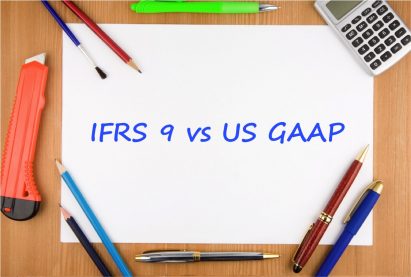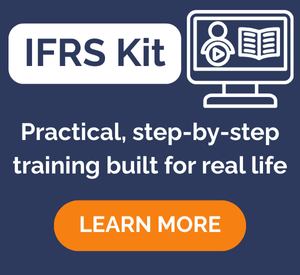How to account for intercompany loans under IFRS
How to account for intercompany loans under IFRS when there is no documentation, loans are not at commercial terms or there is no fixed repayment date? Learn here!
How to calculate bad debt provision under IFRS 9
Last update: 2023 If you have a large portfolio of trade receivables, then you face the same issue over and over again: How to calculate bad debt provision to these receivables? When I worked as an auditor, I used to discuss this issue with my…
What to disclose under IFRS 7 Financial Instruments: Disclosures
About 3 years ago, I was reviewing the financial statements of a medium-sized company providing consumer loans. They needed the IFRS financial statements due to lots of loans taken from foreign banks. Usually, these banks require bigger debtors to provide the financial statements annually. So…
How to Account for Debt Factoring or Selling of Receivables
When I was auditing the financial statements of one of our clients, I spotted a few strange things: There was a huge balance of cash on client’s bank account at the year-end. And I mean HUGE. To illustrate: normally, the client had about CU…
How to Make Hedging Documentation
If your company enters into some derivatives or other contracts to protect against any (potentially adverse) changes in cash flows or fair values, then it’s probably beneficial to apply hedge accounting. I wrote a few articles about hedge accounting, therefore if you need to refresh…
What Is a Financial Instrument?
A few weeks ago, we published the article about How to Implement IFRS 9 to assist you with the adoption of the major forthcoming IFRS update. Many accountants and CFOs are worried about IFRS 9, there are numerous discussions going on about it, but not…
IFRS 9 Financial Instruments Explained (2025): Full Guide + Free Practical Checklist
Updated: May 2025 IFRS 9 sets the rules for classification, measurement, impairment, and hedge accounting of financial instruments. This practical guide simplifies the key principles, with a free video summary and a downloadable IFRS 9 Practical Checklist (2025 Edition). Jump to section: 1. Free VIDEO…
How to Implement IFRS 9
The new IFRS 9 Financial Instruments will replace the older standard IAS 39 in January 2018 and it practically means that if you are affected, you need to start getting ready NOW. Why? Because your comparative period starts in January 2017 and you will need…
IFRS 9 vs. US GAAP – Coming Closer?
We all know that IASB and US standard’s setting body FASB work together in order to prepare a single set of global accounting standards. Recently issued standard on revenue recognition, IFRS 15 and its American counterpart FAS 606 are a good example of these mutual…
Hedge Accounting Under IFRS 9: Rebalancing – What Is This New Concept?
Hedge accounting belongs to the most difficult accounting areas and I published a few articles on this topic on IFRSbox – for example, here and here. Today, I’m delighted to present another hedging article written by Mr. Kevin Mitchel,Partner – Advisory Services at Rochford, the…
Recent Comments
- Tan Chee Hong on Retention in construction contracts
- Ahumuza on Accounting for discounts under IFRS
- Saheed Kehinde on How to account for intercompany loans under IFRS
- hassan ali on IFRS 15 Explained: Full Guide on 5-step Model for Revenue Recognition + Free Journal Entries Template
- BiG4 on IAS 23 Borrowing Costs Explained (2025) + Free Checklist & Video
Categories
- Accounting Policies and Estimates (14)
- Consolidation and Groups (25)
- Current Assets (21)
- Financial Instruments (56)
- Financial Statements (54)
- Foreign Currency (9)
- IFRS Videos (74)
- Insurance (3)
- Most popular (6)
- Non-current Assets (56)
- Other Topics (15)
- Provisions and Other Liabilities (46)
- Revenue Recognition (27)
- Uncategorized (1)













